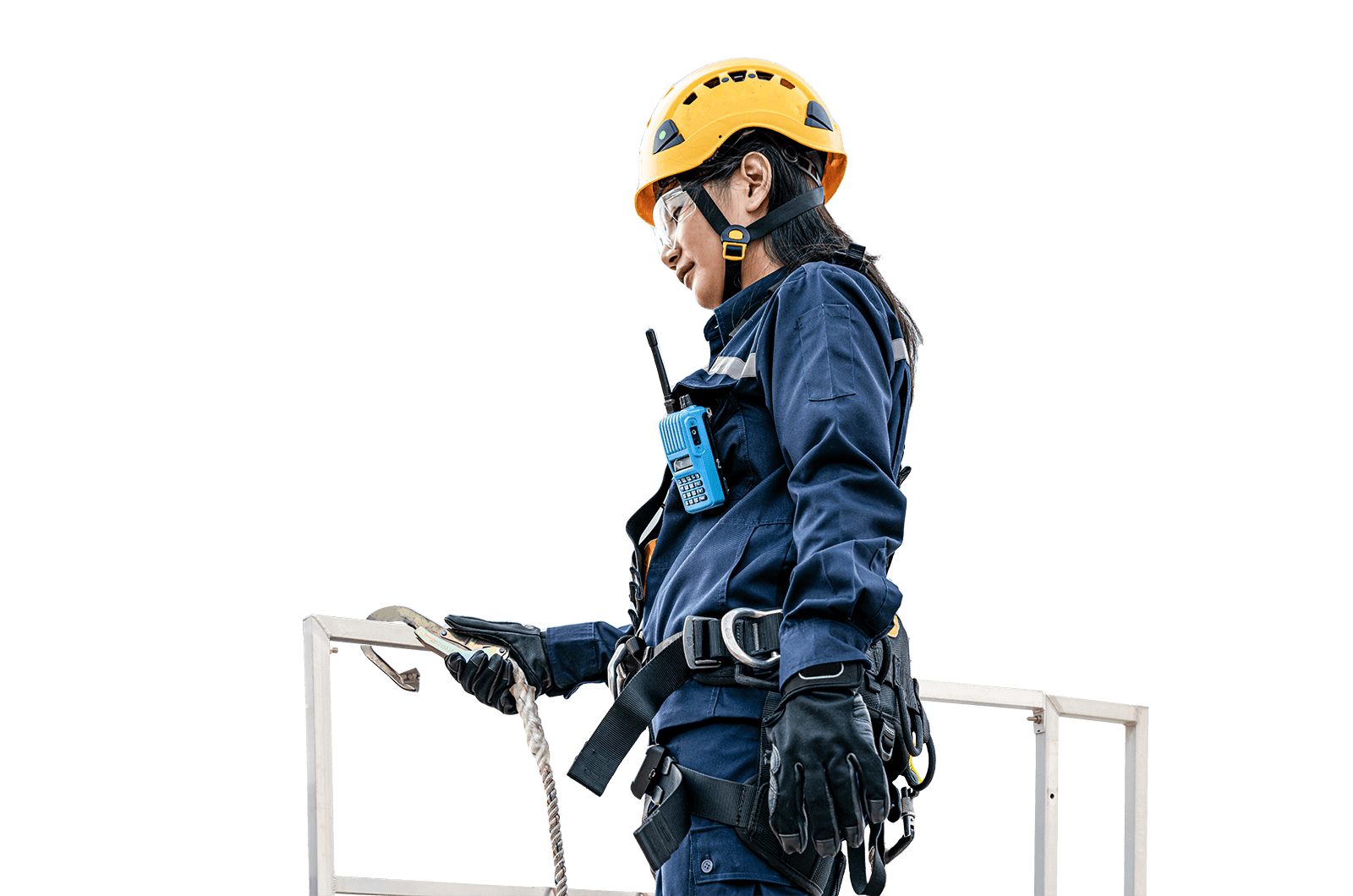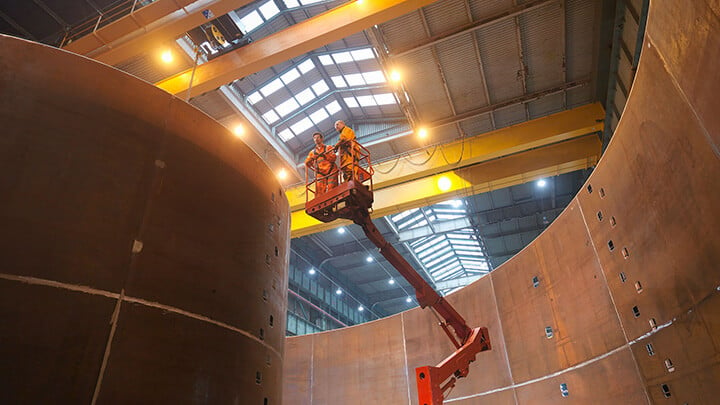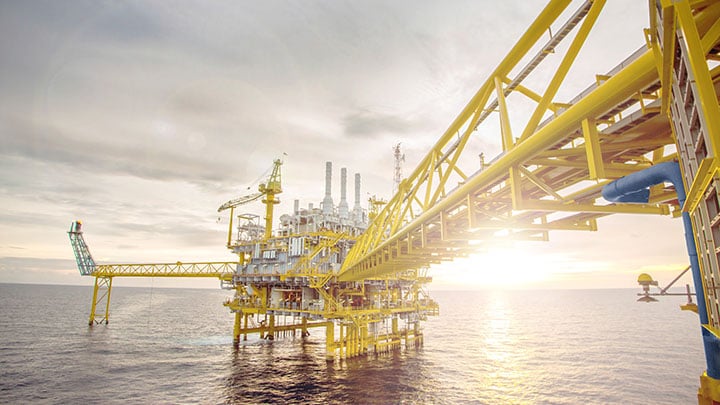Engineering, Failure Analysis, Non-Destructive Testing and Asset Integrity Management training modules for the power generation, oil & gas, and petrochemical industry.
Severe shortage of experienced and trained workforce has been forecasted in the energy industry. Industry sectors of coal, natural gas, renewable and nuclear power generation, oil and gas, and the chemical industry, have estimated a significant portion of their current workforce will retire within the next decade.
Employers must hire and train their technical staff to counter the situation as well as prepare for new technologies and regulatory requirements being introduced in the industry.
Intertek brings its years of expertise and knowledge to the course content. Our asset integrity management training courses are aimed at managers and technical staff, with industry specific and practical applications to ensure that your assets can continue to operate safely, efficiently and reliably.
Location: Intertek training locations, on-site or customized training available upon request
Professional Development: Receive credit toward Professional Development Hours.
For course content and schedule please call or email us.
ASME Section XI constitutes rules for in-service inspection of Nuclear Power Plant Components.
The training course will cover code overview, code and regulatory requirements, flaw evaluation and characterization, inspection requirements, and repair/replacement
This course can also be complemented by attending the OPCON User Training, if you have previously purchased a license of the software.
Big data science is transforming the energy vertical and delivering innovative solutions to asset management problems.
The training course will cover what is Data Science? We will also discuss data manipulation, data analysis with statistics and machine learning, practical introduction to the tools that will be used in the program like version control, markdown, git, GitHub, R, and RStudio and case studies with applications in the Energy Industry
Mechanical Integrity Programs (MIP) play a vital part in ensuring the safety and reliability of oil, gas and chemical facilities and ensuring industry compliance with the applicable regulatory requirements issued by OSHA (Occupational Safety and Health Administration), PHMSA (Pipeline and Hazardous Materials Safety Administration), and SEMS (Safety and Environmental Management Systems).
The training course will cover objectives and goals of a MI program, elements of a successful MI program and Regulatory Compliance, damage mechanisms, fundamentals of RBI, equipment selection, inspection & preventive maintenance, leadership roles, quality assurance and auditing.
Major failures in high energy piping systems (HEP) over the past 30 years highlight the need to establish an effective management program to safeguard the integrity of these systems.
The training course will cover damage mechanisms, metallurgy, ASME B31.1 power piping code, engineering walk downs – best practices and corrective actions, NDE – planning, risk ranking, prioritization, stress analysis based on as-designed, as-built, and simulation as-found conditions, remaining life assessment, flow accelerated corrosion (FAC) – Identification of locations, detection (UT and PEC) and special topics (including Grade 91, fitness-for-service, data management)
Forensic engineering and failure analysis is the art and science of explaining the cause of unexpected, premature, or catastrophic damage.
The training course will cover principles of forensic engineering, materials, failure analysis, damage assessment, data review, evidence control, storage, fundamentals of expert testimony and case studies
This course can also be complemented by attending the “Data Science” and “Non Destructive Examination (NDE) for managers” courses.
Fracture mechanics is the science of determining the resistance to fracture of a component.
The training course will cover introduction of fracture mechanics, and code. We will also cover crack growth resistance, creep fracture, life assessment approach to fatigue or stress corrosion cracking, fatigue crack growth models and mechanisms. Learn why we use fracture mechanics through case studies and application in the oil & gas and power industry.
Nondestructive examination (NDE) is exactly as the name implies – testing that is performed without destroying or impacting the integrity of the item tested. A diverse range of industries use NDE for detecting defects and irregularities and assessing safety in equipment and assets, and the growing need to utilize NDE is a result of companies looking to extend the asset life of their plant facilities in addition to adhering to increased regulation.
The training course will cover an introduction to NDE, NDE techniques used by industry, advantages and limitations, regulatory/industry standards and tolerable flaw assessment.
This course can also be complemented by attending the “Data Science” and “Practical applications of Fitness for Service” courses.
OPCON user training for Operational Assessment and Condition Monitoring software for Nuclear Steam Generators
The training course will cover an introduction to OPCON, probabilistic analysis for steam generator tube integrity assessments, required input and data preparation for OPCON. We will also cover various utility modules provided in OPCON (ProfilerAx, Leaker, and other pre-processors), benchmarking OPCON for operational assessments, OPCON outputs and how it is used in determining the burst probability.
This course can also be complemented by attending the “Data Science” and “Fracture Mechanics” courses.
With a fast maturing wind turbine fleet, having a well-defined program to identify and minimize outages has become necessary.
The training course will cover an introduction to RAM Analysis, designing for maintainability/availability and using failure rate data.
In order to assure safety and reliability of oil and gas production, asset integrity management is required. Risk-based inspection is a key process in asset integrity implementation.
The training course will cover the compelling business case for AIM and the severe consequences of things going wrong. We will discuss main components of an AIM system and historic development of these AIM people aspects, including leadership and competency. Developing a risk based management system to guide all inspection, maintenance, repair and other AIM work will be covered as well as AIM threats, their monitoring and mitigation. AIM anomalies frequently encountered, processing and fitness for service evaluation, implementation of AIM activities, both onshore and offshore.
Other important issues including incident investigation, management of change, emergency response, practice and procedures, performance management, development and implementation of RBI.
Wind turbine gearboxes are prone to premature failure.
The training course will cover fundamentals of drivetrain design, gear and bearing failure mechanisms, industry statistics, inspection methodology. We will also be discussing how to use condition monitoring and data for Failure Detection as well as maintenance and best practices.
In order to ensure integrity of subsea structures, pipelines and other below water infrastructure, subsea inspection, maintenance and repair is necessary.
The training course will cover the compelling business case for Subsea IMR and the severe consequences of things going wrong. Various types of subsea infrastructure, their configuration, purposes and the essential components of Subsea IMR and staff roles/responsibilities. We will discuss developing a risk-based management system to guide all inspection, maintenance and repair work. Subsea integrity threats, their monitoring and mitigation as well as subsea anomalies frequently encountered, processing and fitness for service evaluation. Implementation of subsea activities, both manned and unmanned and other important issues including contracting, safety and performance management.
To assure safe and reliable continued service of used and/or damaged production equipment, fitness for service analysis is necessary.
This training course will cover the business and legal case for FFS and the adverse consequences of things going wrong. We will also discuss the historical development of FFS methods from simple to complex, benefits and scope of FFS in oil and gas production and typical production and processing plant equipment problems for which FFS can be applied. We will be covering FFS data requirements, inspection methods, typical defects encountered, simple and qualitative FFS techniques and semi-quantitative methods. API 579 development and content will be discussed as well as remediation methods, in-service monitoring requirements, data management and roles and responsibilities.
In order to ensure safety and optimum delivery from pipeline operations, Pipeline Integrity Management is essential.
This training course will cover the compelling business case for PIM and the severe consequences of things going wrong as well as the essential components of a PIM and staff roles/ responsibilities. Developing a risk-management system to guide all inspection, maintenance and repair work will be discussed. Implementation of PIM activities, both onshore and offshore as well as emergency response, management of change and performance management essentials.
Corrosion fundamentals will be discussed and those threats most likely to cause pipeline problems, corrosion mitigation and monitoring methods including pigging, chemical treatment, inspection and repair strategies, both onshore and offshore and other important issues including slug flow, hydrates, paraffin, scale, geotechnical and buckling.
In order to assure safety and reliability of oil and gas production, asset integrity management is required.
Intertek USA is pleased to deliver this Asset Integrity Management (AIM) for Oil and Gas Production course, which teaches the people, process and plant management principals and implementation methods required to ensure safe and efficient production operations. This 3-day course provides a sound review of AIM strategies for compliance with regulatory requirements and company safe-delivery targets. It is highly interactive and takes the form of lectures and case studies. On completion of the training course, participants will have a solid understanding of the procedures and practices required in a robust AIM program. These include the compelling business case for AIM and the severe consequences of things going wrong, main components of an AIM system and historic development of these, AIM people aspects, including leadership and competency. Developing a risk-based management system to guide all inspection, maintenance, repair and other AIM work will be discussed. AIM threats, their monitoring and mitigation, AIM anomalies frequently encountered; processing and fitness for service evaluation as well as implementation of AIM activities, both onshore and offshore. Other important issues including incident investigation, management of change, emergency response, practice and procedures and performance management will be discussed.


